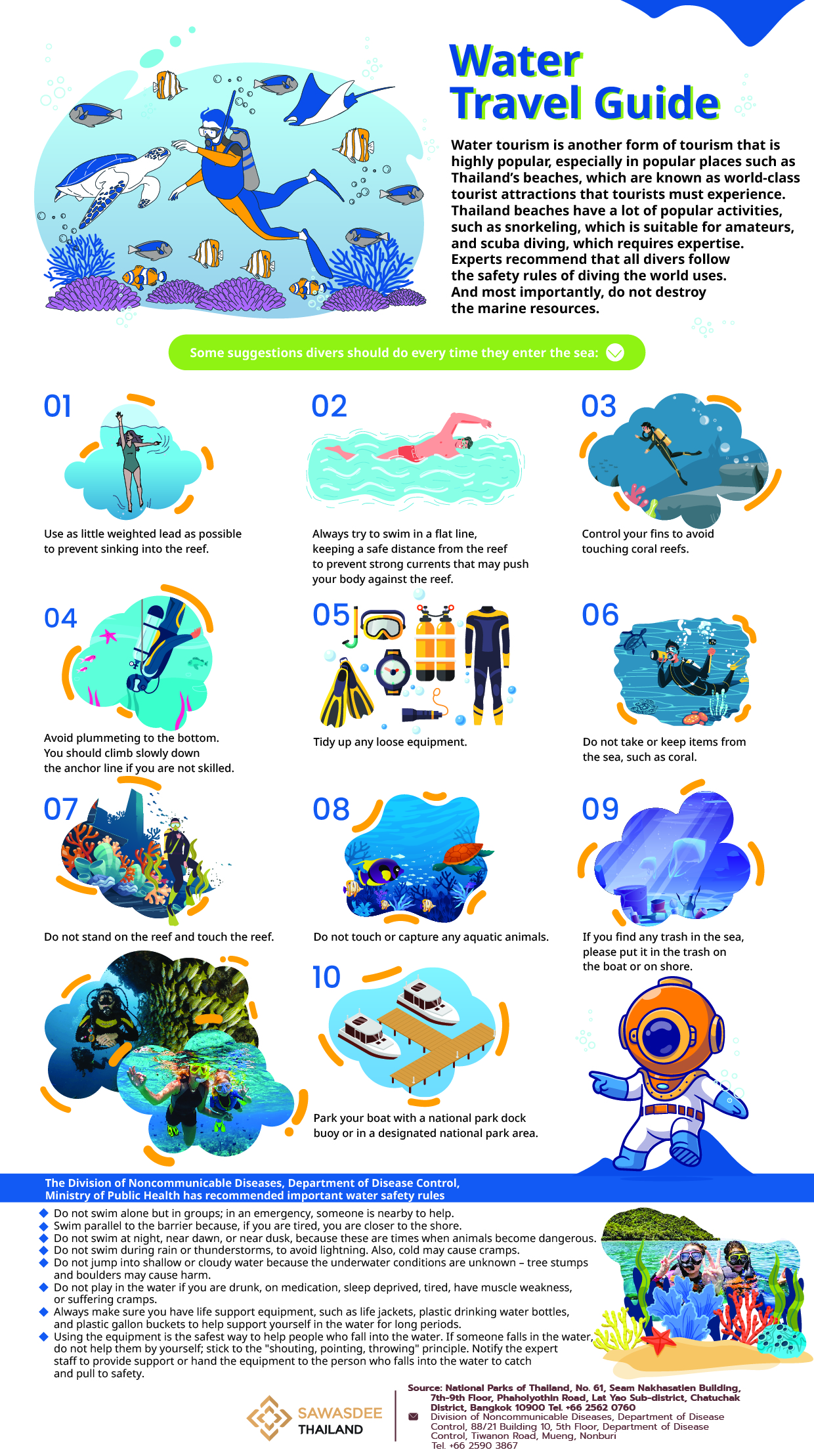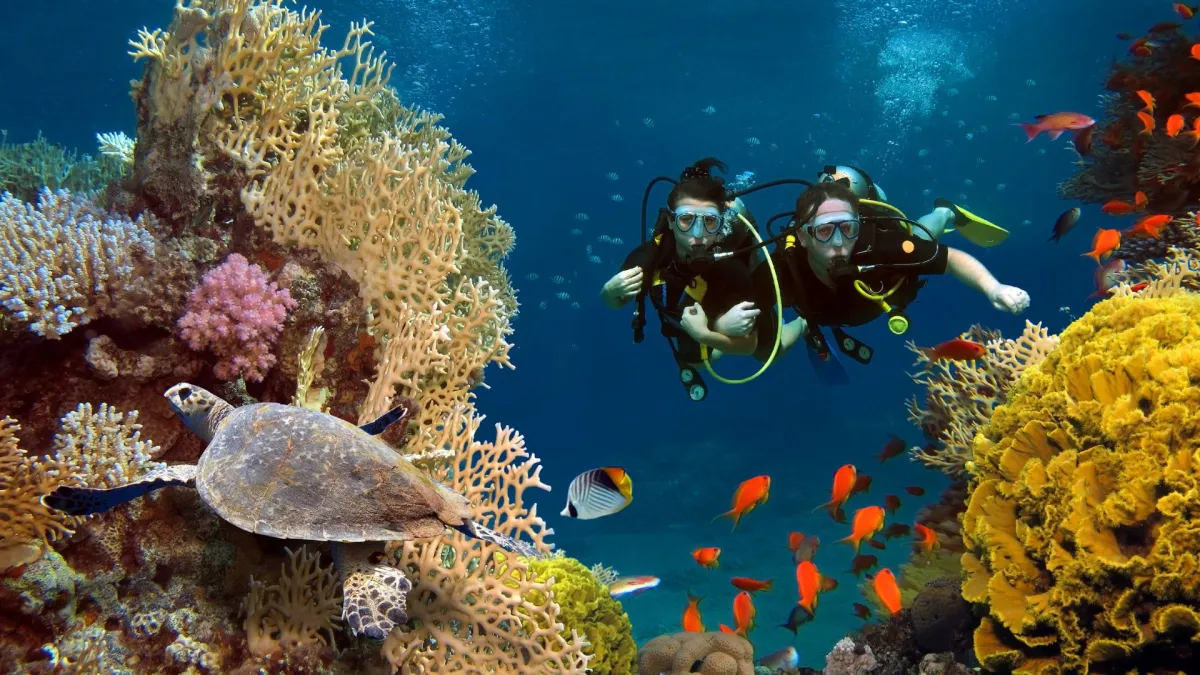Water Travel Guide
Water tourism is another form of tourism that is highly popular, especially in popular places such as Thai beaches, which are known as world-class tourist attractions that tourists must experience. Thailand’s beaches have a lot of popular activities, such as snorkeling, which is suitable for amateurs, and scuba diving, which requires expertise. Experts recommend that all divers follow the safety rules of diving that are followed around the world. And most importantly, do not destroy marine resources.
Below are some suggestions divers should practice every time they enter the sea:
- Use as little lead weighting as possible to prevent sinking into the reef;
- Always try to swim in a flat line, keeping a safe distance from the reef to avoid strong currents that may push your body against the reef;
- Control the use of fins, and avoid touching coral reefs.
- Avoid plummeting to the bottom. You should climb slowly down the anchor line if you are not skilled;
- Tidy up any equipment that has cords or wires;
- Do not take items from the sea, such as pieces from coral reefs;
- Do not stand on the reef or touch the reef;
- Do not touch or catch any aquatic animals;
- If you find any trash in the sea, please take it back to the boat and dispose of it properly when you get to shore;
- Park your boat with a national park dock buoy or in a designated national park area.
The Division of Noncommunicable Diseases, Department of Disease Control, Ministry of Public Health has recommended the following important water safety rules:
- Do not swim alone but in groups; in case of emergency, someone will be nearby to help;
- Swim parallel to the barrier because, if you become exhausted, you will be closer to the shore;
- Do not swim at night, or near dawn and dusk, because these are times when animals may become dangerous;
- Do not swim during rain or thunderstorms, to prevent lightning strikes; also, the water turns colder, which may cause cramps;
- Do not jump into shallow or cloudy water because the underwater conditions are unknown – there could be boulders, tree stumps, and branches that would severely injure you;
- Do not play in the water if you are drunk, on medication, sleep-deprived, fatigued, have muscle weakness, or suffering from cramps;
- Always prepare flotation equipment, in case the boat sinks; life jackets, empty water bottles, and empty buckets turned upside down can keep you afloat in the water for long periods;
- Using proper equipment is the safest way to help people who fall into the water. If someone falls overboard, you are at risk, too, if you try to help them by yourself. Stick to the "shouting, pointing, throwing” principle. Also, notify an expert crew member to provide support, or throw a rope or lifejacket to the person who fell into the water.
Source: National Parks of Thailand, Seam Nakhasatien Building, 7th-9th Floor, 61 Phaholyothin Road, Lat Yao Subdistrict, Chatuchak District, Bangkok 10900
Tel. +66 2562 0760
Division of Noncommunicable Diseases, Department of Disease Control, Building 10, 5th Floor, 88/21 Tiwanon Road, Mueang District, Nonthaburi
Tel. +66 2590 3867
For more information 1
For more information 2


